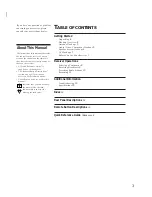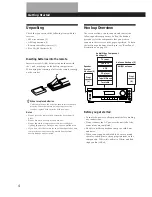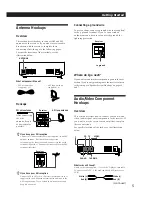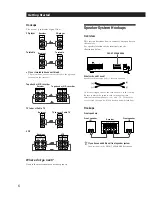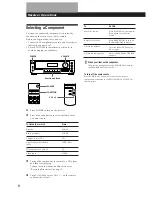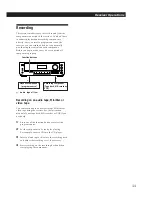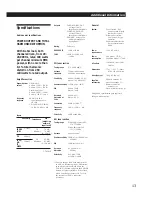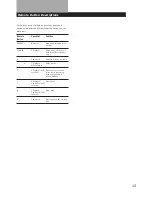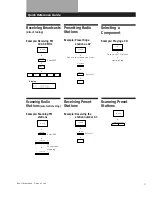
4
Getting Started
Unpacking
Check that you received the following items with the
receiver:
• FM wire antenna (1)
• AM loop antenna (1)
• Remote controller (remote) (1)
• Size AA (R6) batteries (2)
Inserting batteries into the remote
Insert two size AA (R6) batteries in accordance with
the + and – markings on the battery compartment.
When using the remote, point it at the remote sensor
g
on the receiver.
When to replace batteries
Under normal use, the batteries should last for about 6
months. When the remote no longer operates the
receiver, replace both batteries with new ones.
Notes
• Do not leave the remote in an extremely hot or humid
place.
• Do not use a new battery with an old one.
• Do not expose the remote sensor to direct sunlight or
lighting apparatuses. Doing so may cause a malfunction.
• If you don’t use the remote for an extended period of time,
remove the batteries to avoid possible damage from
battery leakage and corrosion.
Hookup Overview
The receiver allows you to connect and control the
following audio components. Follow the hookup
procedures for the components that you want to
connect to the receiver on the pages specified. To learn
the locations and names of each jack, see “Rear Panel
Descriptions” on page 14.
]
]
}
}
Front
speaker
(L)
Front
speaker
(R)
Speaker
System
Hookups (6)
AM/FM antenna
Antenna Hookups (5)
TV tuner
Cable TV
VCR
CD player
Tape/MD deck
Turntable
Audio/Video Component
Hookups (5)
Before you get started
• Turn off the power to all components before making
any connections.
• Do not connect the AC power cords until all of the
connections are completed.
• Be sure to make connections firmly to avoid hum
and noise.
• When connecting an audio cable, be sure to match
the color-coded pins to the appropriate jacks on the
components: White (left, audio) to White; and Red
(right, audio) to Red.



